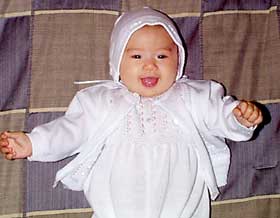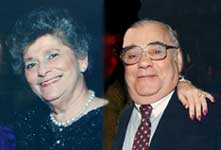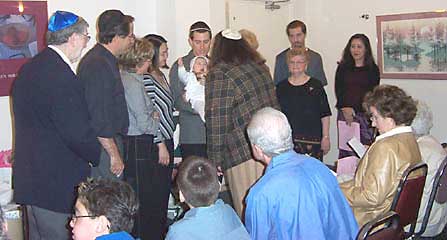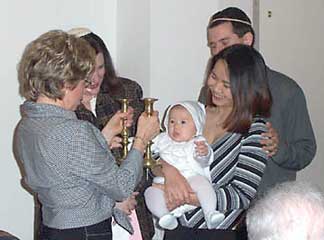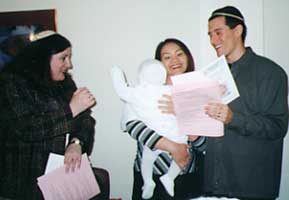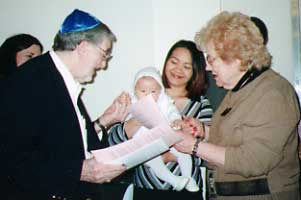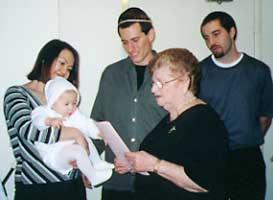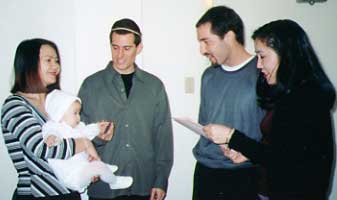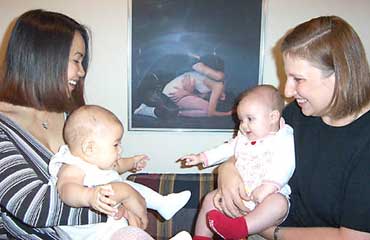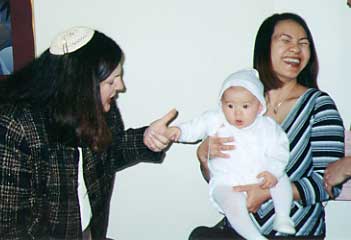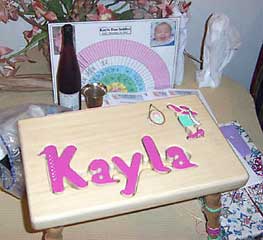Kayla Dao Seidler's Baby Naming
[scroll down to see all of the pictures]
|
|
|
 Kayla gets her name carved |
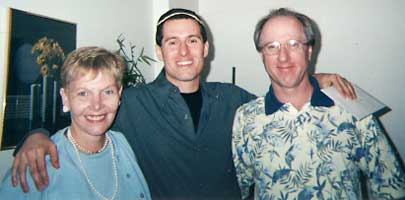
Stephen enjoys his cousin Arlene and Uncle Marc

Naming Your Jewish Baby
Click here to see Kayla's family's Hebrew names
Link to Web Site about Baby Naming
"With each child, the world begins anew."
(Ancient Jewish Saying)
Ashkenazic Jews (usually of Eastern or Central European descent) traditionally name their daughters after someone who has passed on, thereby honoring the memory of the departed.
Judaism places great importance on the naming of each new child. It is believed that the name of a person or thing is closely related to its essence.
When a parent gives a child a name, the parent is giving the child a connection to previous generations. The parent is also making a statement about their hope for who their child will become. In this way, the name carries with it some identity for the child.
According to Anita Diamant in What to Name Your Jewish Baby, "Like Adam's appointed task of giving names to all living things in Eden, naming is an exercise of power and creativity." Many parents today put a great deal of thought and energy into deciding what to name their Jewish baby.
Hebrew names started to compete with names from other languages early on in Jewish history. As far back as the Talmudic period, 200 B.C.E. to 500 C.E., many Jews gave their children Aramaic, Greek and Roman names.
Later, during the Middle Ages in Eastern Europe, it became customary for Jewish parents to give their children two names. A secular name for use in the gentile world, and a Hebrew name for religious purposes.
Today, many American Jews give their children both English and Hebrew names. Often the two names start with the same letter. For instance, Blake's Hebrew name might be Boaz and Lindsey's might be Leah. Sometimes the English name is the English version of the Hebrew name, like Jonah and Yonah or Eva and Chava.

"A Girl"
by Isaya Kulvianskij
(1930)
Currently owned by the Vilna Gaon Jewish Museum in Vilnius, Lithuania
|
|
